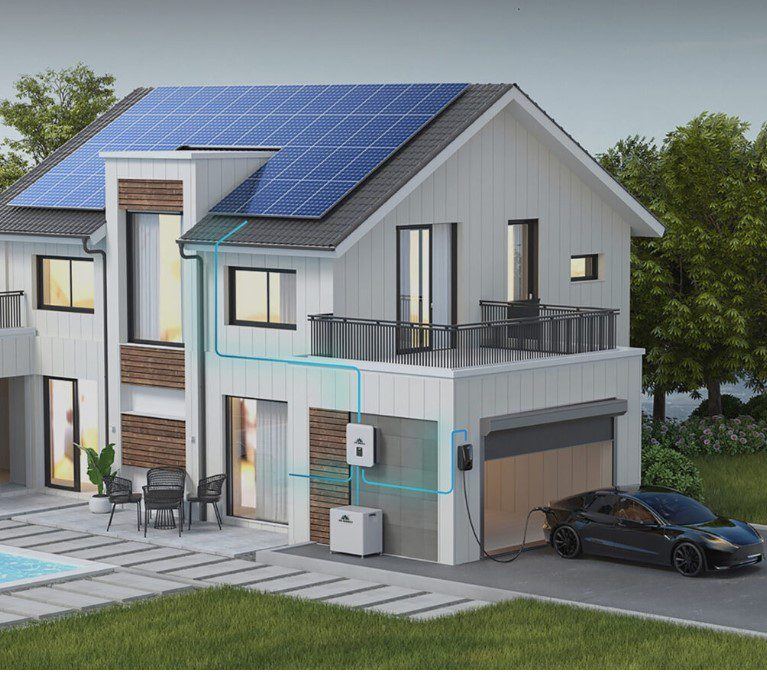At its core, a household solar energy storage system integrates solar panels that convert sunlight into electricity, paired with a storage unit (usually a high-capacity battery) to accumulate surplus energy for later use. Sizing a home solar storage system requires carefully understanding your energy needs, consumption patterns, and the degree of energy autonomy required.
Assess your home energy needs!
Accurately sizing a solar storage system begins with carefully assessing your home’s energy needs, peak usage times, and the unique needs of various appliances. This granular analysis allows you to pinpoint when energy needs peak and whether they are related to the peak period of solar power generation. A closer look at historical electricity bills can give you insight into your average daily and monthly consumption. It is the basis for determining the optimal system capacity required to meet your specific energy needs. A nuanced assessment should cover seasonal fluctuations and expected changes in energy use, ensuring a tailor-made solution will stand the test of time.
Determine your energy consumption patterns!
Every home has unique energy consumption patterns intricately intertwined with daily habits, peak usage times, and the diversity of appliances. Unleashing the potential of solar energy requires estimating the solar panel capacity required to meet a home’s energy needs. Geographical location, local weather conditions, and the orientation of the solar panels relative to the sun can all significantly affect this determination. You can accurately measure your location’s solar potential using online tools on our website or by consulting a solar professional. With this knowledge, you can determine the optimal amount and wattage of solar energy storage system for your home.
Estimating the capacity of a household solar energy storage system
Your geographical location, local climate, and the alignment of your solar panels toward the sun are all important considerations. Start by analyzing your home’s historical energy consumption data. Understand daily and seasonal changes and identify peak usage periods. Determine the duration you want your solar storage system to provide backup power during low or no solar generation periods. This affects the capacity required to maintain the base load during this period. Evaluate the efficiency of an inverter that converts DC solar energy to AC power for domestic use. Inverter losses affect the overall efficiency of the energy storage system.
Choose the suitable battery capacity!
When choosing batteries for your solar storage system, consider your home’s energy consumption patterns. Analyze daily power usage and identify peak demand periods to adjust battery capacity accordingly. Typically, residential systems range in capacity from 5kWh to 20kWh, but energy-intensive homes may require more extensive accommodations. Lithium-ion batteries are commonly used for home solar storage due to their high energy density, longer cycle life, and efficiency. Lead-acid batteries are more economical but have a shorter life and lower energy density. Of course, you must also consider sunlight availability and weather patterns in your location. In areas with frequent cloudy days, larger battery capacity can compensate for reduced solar input.
Consider scalability and future expansion
When planning a household solar energy storage system, we must evaluate current energy consumption and future needs. Choose a design with modular components that can be easily upgraded or expanded. This allows you to start with a basic setup and add more solar panels or batteries as needed. Technology is developing rapidly, and advances will likely be made in solar energy and energy storage. Choose a compatible system for future upgrades and integration of new technologies. This ensures your system remains relevant and efficient in the long run. Seeking professional guidance can ensure your solar storage system is sized correctly and optimized for peak performance.
Use the right size to support your home
We do this by fully understanding your energy needs consumption patterns, and making informed decisions about solar panel and battery capacity. The result is a reliable, efficient energy solution for your home. Don’t make choices easily without knowing your conditions.




